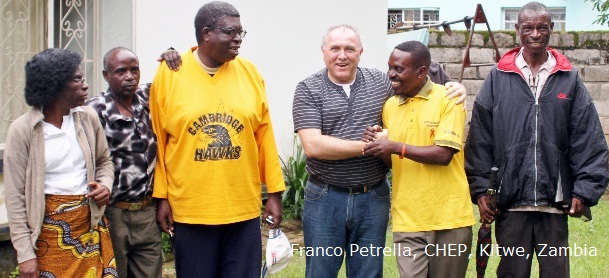Each volunteer’s assignment forms an important part of a long-term strategy to develop the financial management capacity of non-profit organisations. The primary focus is always to develop and enhance the skills, confidence and potential of local people and for our partners to develop the capacity they need to deliver more effective and sustainable services to their beneficiaries.
Volunteer Accountant or Consultant, Coach or Mentor?
Whilst we use the term ‘volunteer accountant’; a more accurate description might be accountants that can volunteer as consultants. An accountant can be responsible for a whole host of skilled functions on a day-to-day basis such as bookkeeping, auditing or producing financial statements and reports. The problem with a volunteer accountant, ‘doing’ rather than ‘guiding or advising, arises as they are temporary and local staff will need to be equipped to thrive without support. We work with our charity partners with the ultimate aim being that after a series of assignments the skills of their staff will be raised to a level that they are able to work effectively without outside assistance.
The role of our volunteers is therefore much more of consultation, coaching and mentoring rather than standalone accounting. For more on this topic click.
First Volunteers
The first volunteer to visit a new partner will begin the programme by conducting a detailed financial health assessment of the organisation and the skills and potential of its staff. Working closely with the volunteer and the local management team AfID use this first report to create a long-term programme of support; creating the terms of reference and a skills profile for the volunteer that will follow. In some respects, these seem more challenging, as you won’t follow another volunteer but these are often more rewarding as you will be the start of something special and there are often many easily actionable, high-impact interventions available to the first volunteer.
Common areas of focus & support
Upon their arrival each volunteer will assess the progress made since the last volunteer's assignment, reconfirm the terms of reference with the local partner’s team before beginning to address primary areas of focus. Common areas of focus can include the following;
- Conducting organisational assessment
- Reviewing bookkeeping and cash management
- Creating, Monitoring & Evaluating budgets
- Developing internal controls and financial procedures
- Assisting donor reporting; restricted & unrestricted cost allocation
- Training on accounting systems
- External audit preparation
- Mentoring a new & inexperienced Financer Manager
- Confidential tutoring of non-finance staff including trustees
The majority of our partners are small and assignments will often be broad in nature, encompassing many areas of focus at a very basic level.
The need for skilled accountants is largely driven by a lack of training at a local level, combined with the complex reporting requirements of overseas donors. Donors will typically restrict their funding to specific items on a project’s budget and limit the allocation for core costs. When you are a headmistress, a doctor or a nun trying to run a small NGO with very limited resources, it can be very difficult to keep accurate records and perform your normal duties; with a different set of accounts, reporting formats and sometimes bank accounts required by each of your many donors
Can I get involved with non-accounting activities?
Field visits observing the organisation’s programmes are a common feature of assignments. Additional responsibilities can include:
- Assisting with funding proposals
- Teaching Microsoft Office; Excel, Word & Powerpoint
- Teaching English
- Coaching and playing sports
- Business development & young entrepreneur skills training


